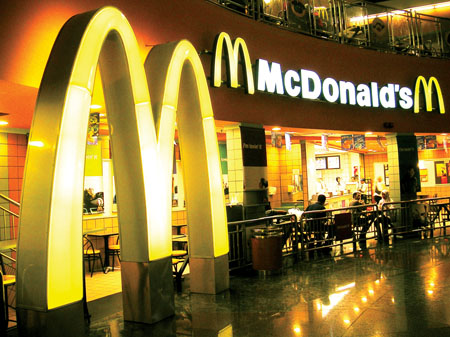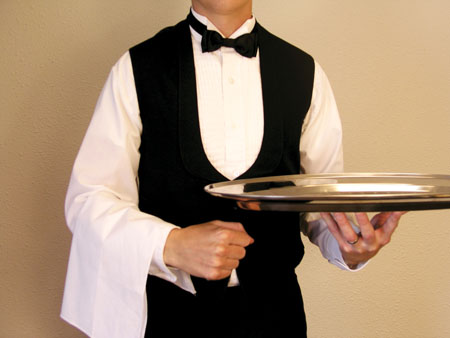Food and Beverage (F&B) franchises remain as one of the most sought after business concepts by potential investors. It is hardly surprising that F&B concepts draw great interest given that many of the biggest names in franchising are from this sector. We have all become too familiar with franchise giants like McDonald’s®, KFC®, Pizza Hut®, Subway® and Starbucks®; which have made their way across the globe to permanently blend in with our lifestyles and etched their brand names in our minds.
Even our own homegrown concepts including Marrybrown®, Secret Recipe®, The Chicken Rice Shop® and OldTown White Coffee® have all found their way abroad and doing well.

In Asia, where dining is a preoccupation, F&B concepts frequently dominate the lineup of exhibitors at franchise expos. From quick-service restaurants to full-service concepts, F&B franchises probably make up the largest sector of ‘homegrown’ franchises of a country, equaling the interest and demand. However, not every F&B concept serves up a winner. What does it take to cook up a successful F&B franchise?
The recipe begins with a fusion of good food and foresight. Reasonably well appreciated food is an obvious prerequisite but foresight is needed to carve an appealing business concept. The total makeup of the business or concept is a critical ingredient and, is increasingly important in marketing ideas in a mature or growing market, where greater exposure and affluency raises expectancy levels. The collective idea of the type of food to be served, the emphasis of its offerings, site preference, its customer service level, price position and outlet environment, etc., can make a profound impact on the intended market segment and determine whether it thrives, survives or crashes!
At the heart of it, the food or beverage offerings must be appealing enough to churn consistent and sustained profits – a golden rule of franchising. There is simply no substitute for appealing food or beverage to ensure the continuous flow of customers. The need to create more food and beverage products regularly may be necessary to keep the interest of customers flowing as competition builds. Relying just on one or two popular products, is highly risky – evident with the collapse of some concepts and even networks, when the novelty wears off or an exclusive recipe becomes common.
Add a generous dose of commitment in maintaining high standards in food quality and preparation to ensure every serving has the consistency in taste and presentation. Many fail to realise the importance and slump to oblivion when customers become frustrated with inconsistencies or turned off by progressively failing quality.

McDonald’s®established the standards in food specifications and quality back in a time when no one bothered. Their commitment was exemplary as was their conviction to find out why their french fries did not turn out golden brown every time, despite using the same type of potatoes under the same cooking conditions. Launching research in seemingly negligible details and acting on the desire to improve, resulted in expertise and know-how years ahead of others. But mainly, it displayed the conviction and soul behind the brand.
To serve up F&B concepts for franchising, additional ingredients must be added to the winning recipe. The food and beverage products must strike wide appeal and able to succeed in a wider geographical territory – regionally or internationally; otherwise, there may be simply no point in franchising. F&B concepts emphasising solely on local fare may find it more difficult to succeed in foreign markets but, not entirely impossible. Was it not McDonald’s® who taught us how to appreciate burgers many years ago when exposure was little and resistance to anything new was highest? However, this does not mean we can go about opening laksa outlets everywhere. Anything is possible but, franchising is only concerned with the most probable.
Consistency is a key emphasis and an obsession in franchising. The look and feel of the outlets, brand identity, products, customer treatment, policies and practices must be uniformed. The outlet environment in a Dunkin’ Donuts®is similar globally, Big Mac®tastes much the same in Singapore or in London and the customer service culture is identical for TGIF®everywhere. Without consistency, there is little recognition and relationship within a network, weakening networking advantages.

Operating systems almost always need to be refined. Processes and procedures would usually be reviewed, made more effective and lean. Operating methods carried on from over the years may be redundant or ineffective for situations today. The franchisor has the responsibility to whip up to shape its operating systems since the expertise is also ‘leased’ out in franchising.
An essential ingredient to the recipe for franchising is the protection of intellectual property rights. With franchising, the right to use the intellectual property of the franchisor is inherent. Efforts must be made to allow franchisees unhindered use of trademarks, copyright, patents and confidential information which may include recipes, operating methods, formula and such. Apart from enjoying continuous use, protective measures should also be in place to avoid any intellectual property being exposed or exploited.
Perhaps the most potent ingredient in the recipe for franchising success is the mindset and approach of the franchisor. To be successful in franchising, the principal or franchisor has to approach this expansion strategy with a new perspective in mind. The need to micromanage must be reduced while embracing the intricacies of new ‘partners’ of the business in franchisees. The management team has to acquire new knowledge and skills to implement franchising decently. New franchisors often do not understand the challenges and complexities that franchising can bring and tend to commit expensive mistakes. In the excitement to expand, the ability to support franchisees and maintaining high standards of operation must not be forsaken.
F&B concepts will remain as the leading sector in franchising and will continue to be among the most appealing investments for as long as it is fashionable to eat out! With the many that have succeeded, many too have failed. There are always elements of luck and timing involved but mostly, calculated planning and the undying desire to improve, will steer the path to success.

Dennis Khoo Boon Teng is the Managing Director of Delta Franchise System. He has more than 15 years of experience in franchising and licensing. He frequently conducts franchise training programmes for the Malaysian Franchise Association and Perbadanan Nasional Berhad.







when is this article prepared? i would like to quote something from this article.